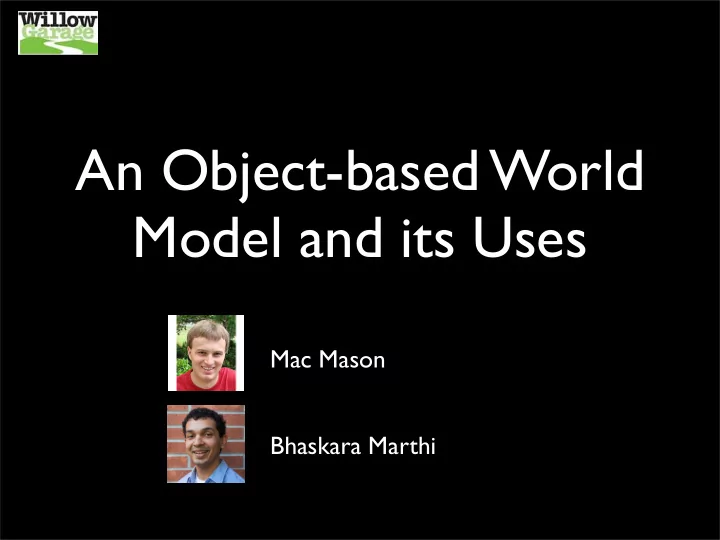

An Object-based World Model and its Uses Mac Mason Bhaskara Marthi
“I just want a robot that keeps track of my stuff” - Aditi Nabar (spouse)
Pipeline Point Planes in Plane Data Clouds frame Set of Kinect Plane Finder Association planes DB Points above planes Object Set of objects Object Data clusters + metadata Clustering Association
Implementation • PR2 + Kinect • ROS, PCL, Nav stack • MongoDB for storing info • Binary blobs + metadata (color, shape, ...) • Partition by run • Efficient queries over location, attributes
Data Association • Match within runs based on spatial overlap • Don’t commit to matches across runs • Discover likely matches at query time
Attribute perception • No object categories or instances • Instead, extract descriptive features Color: Red Shape: Cylinder Diameter: 0.1m
Sensors to symbols • Sensor level • Point clouds, images, • Normals, SIFT features, ... • Symbolic level: objects, categories, relations • How to connect?
Bridging the gap [Galindo et al, 2008]
Reify Geometry • Surfaces, clusters, cluttered regions, ... • Color, shape, topology, ... • A lot can be done at this level!
Conclusions • Object-based world model • Allows • Change detection • Semantic querying • Robust to noisy perception
Conclusions • Object-based world model • Allows • Change detection • Semantic querying • Robust to noisy perception Thank you!
Recommend
More recommend